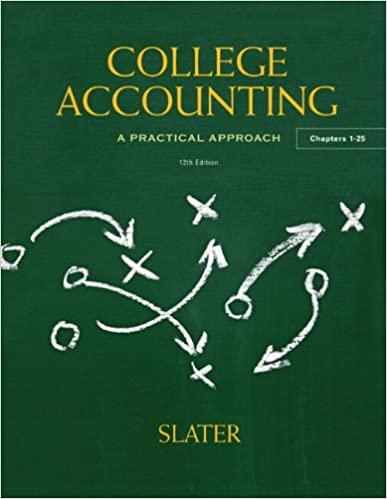As an employer, Stan, what are your tax responsibilities? asked Angel Tavarez, president of the Los Palmos
Question:
“As an employer, Stan, what are your tax responsibilities?” asked Angel Tavarez, president of the Los Palmos Kiwanis club. They were at one of the luncheons sponsored by the club every month, and Stan had been asked to join a discussion on the role of small business in the local economy. Fortunately, Angel had told the panelists the questions in advance, so Stan had his answers ready.
“Well, of course, I pay city, state, and U.S. government taxes myself. I also have to fi le city, state, and federal withholding taxes for each of my two employees. I have to withhold state unemployment taxes, as well as FICA, which is another name for OASDI and Medicare taxes, for each of them. I pay workers’ compensation, too,” said Stan.
“That’s strange,” said a voice from the audience. “My brother-in-law has a Subway restaurant in the southern part of the state, and he doesn’t pay any city taxes. What’s going on here?”
“Naturally, the situation is slightly different for Subway owners in different cities in our state—and across the country,” said Stan confi dently. “Not all cities have city income taxes. Different states have different regulations about workers’ comp as well.”
“Oh, right,” said the voice, sounding embarrassed.
“So, Stan, how often do you have to pay taxes?” asked Angel Tavarez, shifting the topic diplomatically.
Stan picked up a piece of chalk and drew four large circles on the blackboard. Then he wrote the word “ASPIRIN” in each of the circles. A murmur of “Huh” and “What” went around the room.
“The average employee working for a company pays taxes once a year on April 15 and has one big tax headache. As an employer,” Stan said, “I file tax returns on a quarterly basis, so I have four big tax headaches a year! Rather than filling out the 1040-EZ, I complete the Form 941, the Employer’s Quarterly Federal Return, to report and pay payroll taxes to the IRS. Yet, while the form is due quarterly, I actually need to deposit the tax money into a Federal Reserve Bank once a month.
In addition, I have to file the 940 at the end of each year to pay my federal and state unemployment taxes. Then, for each employee. . . .”
“Stan,” Angel interrupted, “I’m afraid time is running out for your segment of the panel discussion. We’ll move on to Pamela Pudelle, who is going to tell us about advertising her new pet-grooming parlor.”
Later, during the reception, Stan tapped Angel on the shoulder, “Sorry I went over my time limit,” he said. “You didn’t really go over,” said Angel, “but you were getting a little too technical for the audience.” While Stan was sorry to have let the discussion veer off course, he felt a little burst of pride: Who would have thought a year ago that he would be willing—and able—to expound about the tax burden of a small business owner!
Discussion Questions
1. What are the taxes called “Form 941 taxes”?
2. Why is Stan classified as a monthly depositor of Form 941 taxes?
3. Assume Stan owed $2,069.90 in Form 941 taxes for March. When would it be due? What would happen if that day were a Sunday?
Step by Step Answer:

College Accounting A Practical Approach Chapters 1-25
ISBN: 9780132772068
12th Edition
Authors: Jeffrey Slater





